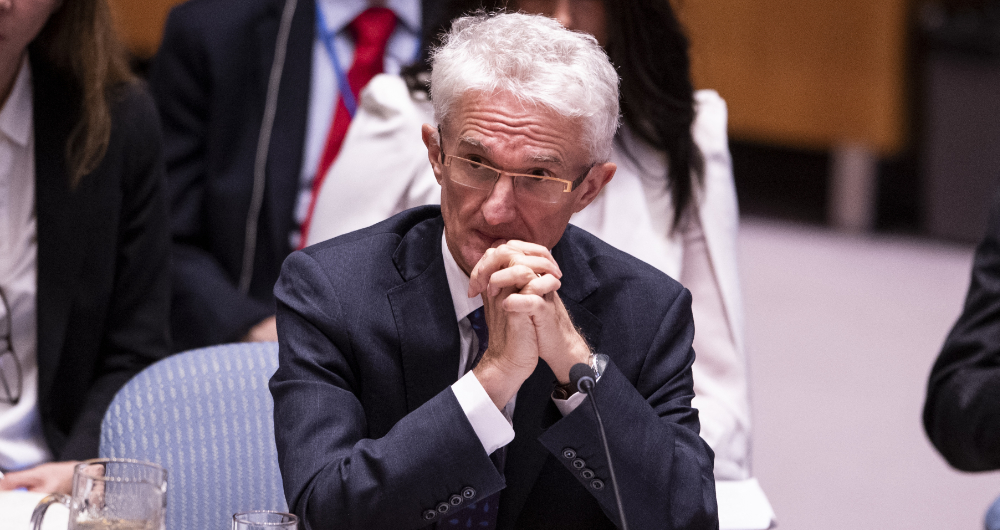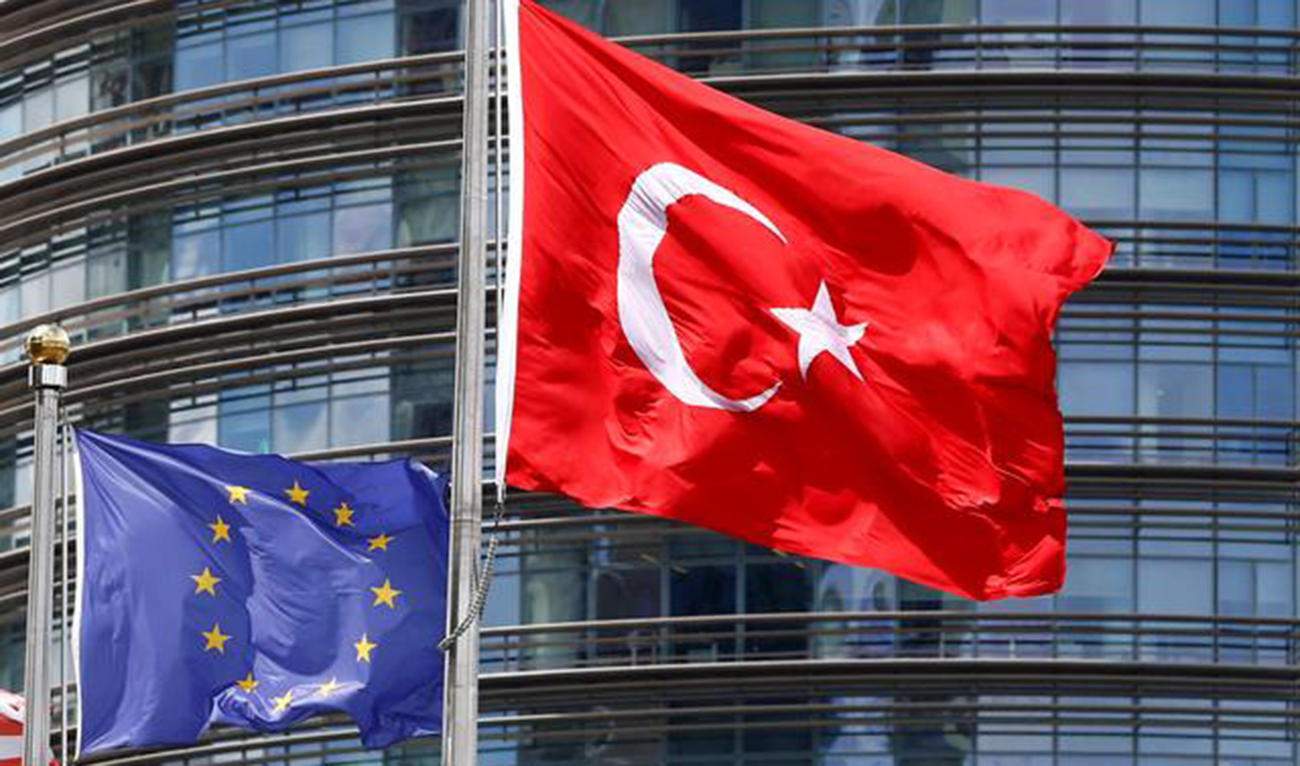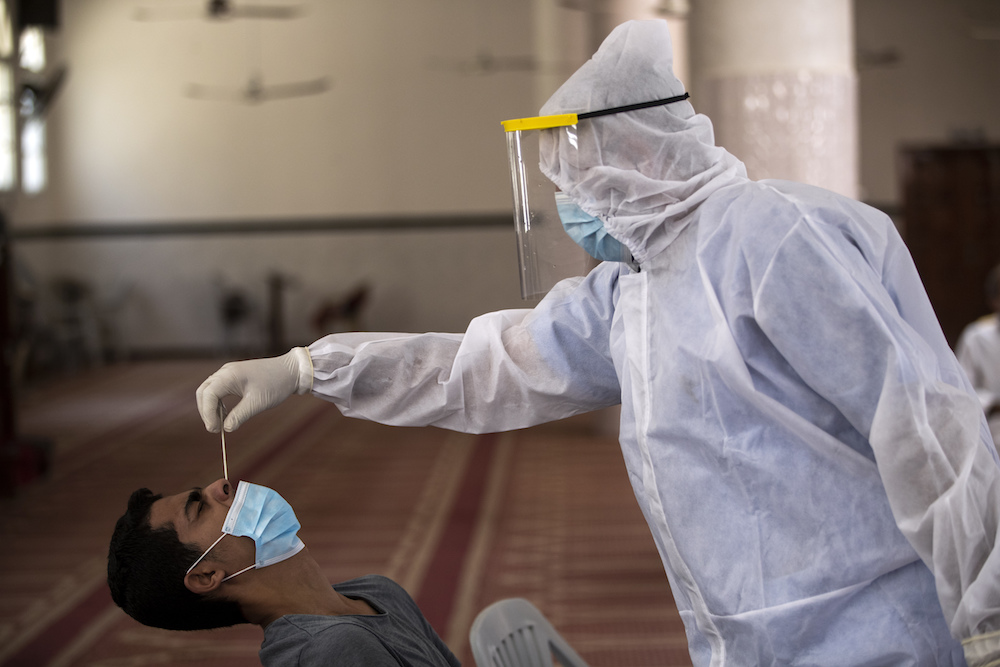Houthi offensive ‘risks new humanitarian crisis in Yemen’
AL-MUKALLA: Yemen is on the brink of another humanitarian crisis as the Iran-backed Houthis press ahead with their large-scale offensive on the central city of Marib, where more than 750,000 displaced people have sought shelter, UN and Yemeni officials warn.
Mark Lowcock, the UN’s humanitarian chief, has warned against the impact of the Marib attacks on people who have fled fighting in their hometowns.
“An assault on the city would put 2 million civilians at risk, with hundreds of thousands potentially forced to flee — with unimaginable humanitarian consequences. Now is the time to de-escalate, not to add even more to the misery of the Yemeni people,” the UN official said in a Twitter post on Tuesday, without mentioning the Houthis.
Earlier this month, the rebel militia resumed a major military offensive on Marib, the last stronghold for the internationally recognized government in the northern part of the country and an oil and gas-rich city, sparking heavy fighting with army troops and allied tribesmen that claimed the lives of hundreds of combatants on both sides.
Escalating fighting has forced hundreds of people who live in displacement camps near the battlefields to flee to other shelters inside Marib.
Echoing UN concerns about the humanitarian situation in the city, Yemeni government officials and aid workers say the Houthi offensive has triggered a new wave of displacement from Marib’s Serwah area as the rebels seek to break government defenses.
“I saw today four families cramming into one car and fleeing fighting in Al-Zor in Serwah,” Yahiya Hussein, a local air worker in Marib, told Arab News by telephone on Tuesday.
Dozens of families are still heading to Marib’s crammed camps to escape the fighting, he added.
Hussein, who fled Houthi-controlled Sanaa in 2016, said that militia attacks on displacement camps have increased in the past two weeks weeks and large explosions have forced many people to flee.
“People here are hungry. They live in panic and fear, and have no jobs,” he said.
Unlike many lawless Yemeni areas, Marib has enjoyed peace and stability since early 2015, becoming a major haven for hundreds of thousands of people who fled the fighting and Houthi repression.
Local and international aid workers have warned that the Houthi invasion of Marib will trigger a huge displacement from the city to the other government-controlled areas or neighboring countries.
Hussein said that only pressure from international organizations on the rebels can save the city and country from disaster.
“International organizations and right groups should seriously and strongly intervene by pressuring the Houthis to stop their offensive on Marib,” he said.
Fighting intensified on all fronts in Marib on Tuesday after a brief lull the previous day as government forces pushed back militia attacks and made limited gains in the Serwah area.
Yemen’s defense ministry said that army troops and allied tribesmen engaged in heavy fighting with the Houthis, halting the rebels’ progress.
Arab coalition warplanes carried out several sorties, targeting Houthi military reinforcements heading to Marib battlefields, the ministry said.
Airstrikes by coalition warplanes have tilted the balance of the war in favor of government forces and stopped militia advances in Marib and other battlefields.
Several Yemeni MPs have called on the government to withdraw from the Stockholm Agreement and resume a military offensive on the western city of Hodeidah to ease rebel pressure on government forces in Marib.
Mohsen Basurah, deputy parliamentary speaker, said the Houthis are pushing ahead with their offensive on Marib despite suffering heavy casualties.
He urged the Yemeni president to launch a general mobilization and move military units from liberated areas in southern Yemen to Marib to shore up government forces.
“History will not forgive us if the Houthi enter Marib,” Basurah said on Twitter on Monday.

Houthi offensive on Marib threatens prisoner swap talks, says government minister UN Yemen envoy demands rebels halt Marib attack



